| All Artists: Ira Gershwin Title: Lady In The Dark (1997 Original London Cast) Members Wishing: 1 Total Copies: 0 Label: Jay Records Release Date: 5/5/1998 Album Type: Cast Recording Genres: Pop, Soundtracks, Classical, Broadway & Vocalists Style: Musicals Number of Discs: 1 SwapaCD Credits: 1 UPCs: 605288127823, 5015062124422 |
Search - Ira Gershwin :: Lady In The Dark (1997 Original London Cast)
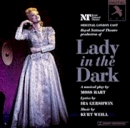 | Ira Gershwin Lady In The Dark (1997 Original London Cast) Genres: Pop, Soundtracks, Classical, Broadway & Vocalists
|
Larger Image |
CD DetailsSimilarly Requested CDs
|
CD ReviewsLADY IN THE DARK should step into the limelight! Mike Ward (MiklBear@aol.com) | San Francisco, CA | 05/10/1999 (5 out of 5 stars) "Perhaps one of the more sophisticated and lush scores ever to have been written for the Broadway Stage, this import version brings to light the lovliness of this LADY IN THE DARK. With a score by Kurt Weill and lyrics by Ira Gershwin --delivered with power and panache on this crisply recorded cd -- as well as some exceptional information about the history of the piece in the liner notes, this particular recording of LADY IN THE DARK shows why this seemingly lost score deserves to be heard and, perhaps, revived on the current Broadway stage or in regional theatres. Listen to this disc and see why Weill is perhaps the most undeservedly overshadowed composer who deserves more exposure and greater recognition as one of the best --if not THE best-- composer of our time. (SIDE NOTE: If you've listened to the original Broadway recording or have seen the butchered Hollywood film version with Ginger Rogers, you've NEVER experienced the genius of this score. Buy this cd to capture the true brilliance of this oft forgotten musical gem.)" A forgotten gem of vast historical importance burghtenor | Washington, DC | 02/11/2002 (5 out of 5 stars) "Many people cite OKLAHOMA! for re-inventing the Broadway musical in 1943. Those who praise it repeatedly cite three revolutionary concepts: three-dimensional characters, a quiet opening, and a choreographed dream sequence revealing the heroine's inner desires. How does LADY IN THE DARK (premiered in 1941) stack up? The characters are three-dimensional, and the show opens with one man on stage in an office. Dream sequences? There are three multi-song technicolor dreams, plus an extensive flashback sequence. Even though it's rarely staged today and many avid fans of Broadway musicals are unfamiliar with it, LADY IN THE DARK was a hit back when it was first staged in 1941. Look at the talents who collaborated on it: Moss Hart wrote the book, Kurt Weill wrote the music, Ira Gershwin wrote the lyrics, Gertrude Lawrence and Danny Kaye originated two of the lead roles. THE STORY: Liza Elliot, a successful editor of a women's fashion magazine, has been feeling uneasy and she can't figure out why. As a last-ditch attempt to get a grip, she goes for psychoanalysis. As we watch Liza interact with her coworkers, her lover, and a movie star, we also view the issues with which she's struggling through her dreams. And what dreams they are! In the first, she's the epitome of glamour and popularity, in the second, she imagines her wedding going terribly awry, and in the third - one of Broadway's most incredible musical sequences - she is the defendant in one of the most bizarre courtroom dramas ever witnessed. It isn't until Liza has talked through these dreams that she finally recalls some childhood incidents that she has repressed - related in surprising ways to the dreams - that free her to move onward. THE MUSIC: Wow! Kurt Weill and Ira Gershwin have created some amazing stuff! Almost all of the music occurs in the three dream sequences. Three of the four songs in the first dream, "Oh Fabulous One," "One Life to Live," and "The Girl of the Moment," are great. The second dream features the romantic ballad, "This Is New." All five songs in the third dream are wonderful, especially the two consecutive showstoppers, the Ringmaster's comic diversion, "Tchaikowsky," and Liza's defense of the virtue of indecision, "The Saga of Jenny." The only real clunker in the show is one number from the second dream, "The Princess of Pure Delight." Ira Gershwin said that LADY was his best work, and he's right. There's only a few of those forced rhymes that abound in his earlier work. THE RECORDING: This is a JAY Records recording, so I can't say I was surprised at the weirdness of the liner notes. There's lots of interesting historical information on the creation of the show and of the recording, pictures from the production, and complete lyrics, but there's no cast listing! There's no plot synopsis either, but the music is so essential to the show that you'll have a good idea what the show is about after listening. Don't worry, there'll still be enough surprises left for you to discover if you have the opportunity to see the show performed live later. The casting choices are good: these people (whoever they are) are actors first and singers second, which is the correct emphasis needed to pull off such plot-drenched music. SUMMARY: If you're a musical theater fan, you need to add this to your collection!" Maria Friedman AND Kurt Weill?how could you go wrong? Sean (paul@sook.org) | the unfortunate city of Broken Arrow, Oklahoma | 10/30/1999 (5 out of 5 stars) "This is the best representation of this fabulous score that I've ever heard (and I've also heard the 1963 studio cast with Rise Stevens and old 1941 recordings with Gertrude Lawerence and Danny Kaye). Maria Friedman is a wonderful Liza Elliot, and her performance of "The Saga of Jenny" is the best bravura performance of this song out of the above-mentioned recordings AND off of the 1972 OCR of the off-Broadway revue BERLIN TO BROADWAY WITH KURT WEILL. I am so glad that the booklet contained the lyrics, and some stellar liner notes and photographs of the production. Finally, complete recordings of "The Princess of Pure Delight," "One Life to Live," "Girl of the Moment," and "This is New." And there is also the beautiful, haunting, and peaceful rendition of the beautiful, haunting, and peaceful "My Ship." This show really does deserve new life (as does just about everything else by Kurt Weill), and maybe if theatre artistic directors hear this recording, they will realize that there were more musicals written in the 1940's than just OKLAHOMA! and CAROUSEL. May Kurt Weill's msuci have a long life in recordings such as this one. (And if you like Friedman on this, check her out in recordings of PASSION, CABARET, and A LITTLE NIGHT MUSIC.)"
|

 Track Listings (17) - Disc #1
Track Listings (17) - Disc #1
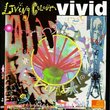
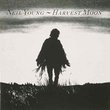
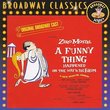
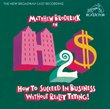

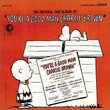
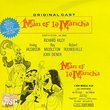

![Sly & the Family Stone - Greatest Hits [Epic]](https://nationalbookswap.com/cd//m/63/8263/18263.jpg)